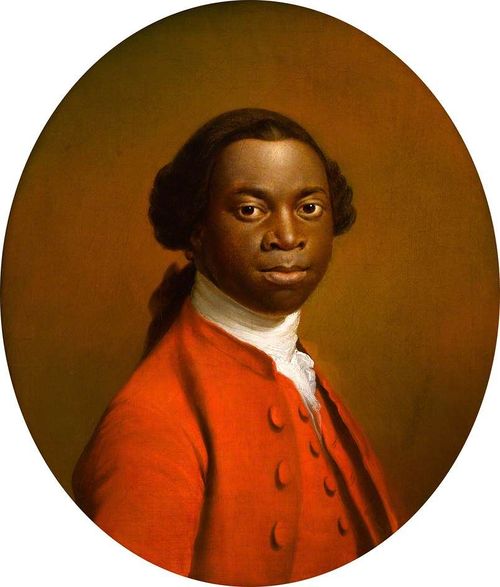Annotation:Sword Knot: Difference between revisions
No edit summary |
No edit summary |
||
| Line 10: | Line 10: | ||
<div style="text-align: justify; direction: ltr; margin-bottom: 90px; margin-left: 70px; margin-right: 120px;"> | <div style="text-align: justify; direction: ltr; margin-bottom: 90px; margin-left: 70px; margin-right: 120px;"> | ||
<br> | <br> | ||
'''SWORD KNOT, THE.''' English, Country Dance Tune (whole time). G Major. Standard tuning (fiddle). AABB. The tune was first printed in a small volume called '''Minuets, Cotillon & Country Dances''' printed in London in 1767, written by Ignatius Sancho. The title page gives that the volume was "by an African", the remarkable Sancho [https://en.wikipedia.org/wiki/Ignatius_Sancho] (1729-1780), who was born on a slave ship, but was taken to England where he became a servant of the Montagu's where he found the opportunity to develop keen intellectual interests. The Montagus eventually became his patrons and assisted him in setting up a grocery shop. As a male householder living in Westminster, Sancho became the first African to vote in a British election. He published a '''Theory of Music''' and two plays, and was the first person of African descent to receive an obituary in the British press. | '''SWORD KNOT, THE.''' English, Country Dance Tune (whole time). G Major. Standard tuning (fiddle). AABB. The tune was first printed in a small volume called '''Minuets, Cotillon & Country Dances''' printed in London in 1767, written by Ignatius Sancho. The title page gives that the volume was "by an African", the remarkable Sancho [https://en.wikipedia.org/wiki/Ignatius_Sancho] (1729-1780), who was born on a slave ship, but was taken to England where he became a servant of the Montagu's where he found the opportunity to develop keen intellectual interests. The Montagus eventually became his patrons and assisted him in setting up a grocery shop. As a male householder living in Westminster, Sancho became the first African to vote in a British election. He published a '''Theory of Music''' and two plays, and was the first person of African descent to receive an obituary in the British press. [[File:sancho.jpg|500px|thumb|right|Portrait thought to be of Ignatius Sancho, attributed to Allan Ramsay.]] | ||
<br> | <br> | ||
<br> | <br> | ||
Revision as of 17:25, 1 July 2018
X:1 T:Sword Knot, The M:kC L:1/8 R:Country Dance Tune C:Ignatius Sancho B:Sancho – Minuets Cotillons & Country Dances (1767, pp. 18-19) Z:AK/Fiddler’s Companion K:G g2 dB cecA|BdBG FA D2|BdgB ceac|BAGF G2 G,2:| |:BdBG cecA|defd d^cBA|fafd gbge|agfe d2D2| g2 dB cecA|BdBG FADc|BdgB ceac|BAGF G2G,2:|]

The tune also appears in Straight and Skillern's Two Hundred and Four Favourite Country Dances, vol. 1 (London, 1775, p. 22) and in Thomas Skillern's Skillern's Compleat Collection of Two Hundred & Four Reels...Country Dances (London, 1780, p. 94).
